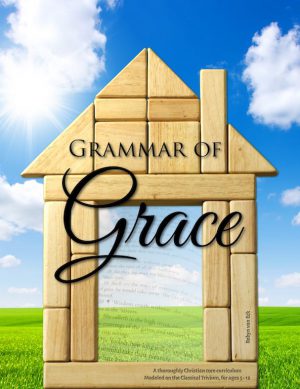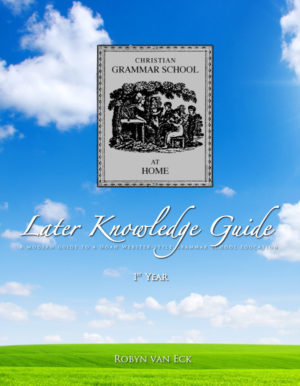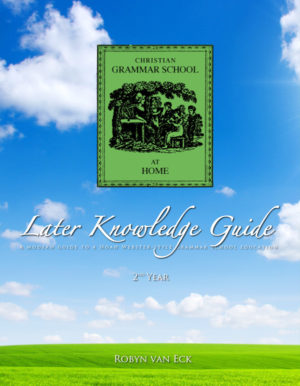Photo by Andrew Benefield on Unsplash
I’m always picking up clues about how education used to be done, back when they were getting results like, “In Connecticut, 995 out of 1000 of the population were highly literate.” That sounds nice, doesn’t it? Old books talk about education, but the authors were writing about what was normal for them back then, so they don’t often go into detail about what all of their readers thought was normal! But the clues are there, and little by little, we can learn a lot about how to recreate those old methods that worked so well.
Right now, I’m reading an old book about Noah Webster, and the opening chapter has so many gems, I thought I’d take you along for the ride this time.
The book is Noah Webster: Schoolmaster to America, by Harry R. Warfel. It was published in 1936, so it’s a bit of a mixed bag. On the one hand, because the author wrote it 93 years after Webster’s death, he goes into a lot more detail than an older book would have about how education was done back in Webster’s day, since none of his readers had been alive back then.
But on the other hand, Warfel unashamedly condemns those old methods as “sufficient”, “merely … rudimentary”, “unpleasant”, and “plac[ing] the student upon the bottom rung of the ladder of learning”. The Progressives of the early 1900’s were nothing if they weren’t historical revisionists. They couldn’t erase American history—Americans knew and loved their history too well for that—so they revised it, painting everything Christian as old and bad, regardless of the marvelous benefits they themselves had derived from those good old ways. Today, living in the devastation wrought by the Progressives’ rejection of everything good and Christian that had come before, Kipling’s classic comes to mind: The gods of the Market have tumbled, and their smooth-tongued wizards have withdrawn… The gods of the copybook headings, with terror and slaughter return!
Still, the history bits are very helpful, so I’ll share the good parts.
Puritan Work Ethic
The book paints a picture of Noah Webster’s childhood, in Connecticut, in the 1760’s.
First, consider the education Webster and the other children received, outside of academic schooling:
Connecticut boyhood in the years before the Revolution…
As soon as a boy could call a dog, he was sent in seasonable weather to keep the cattle from straying, to pick berries, and to help clear the stony fields. A stouthearted lad of twelve drove a team or even walked behind the plow. Milking became a chore morning and evening. Carrying in wood and splitting it were winter activities. Butchering, with its pleasant neighborly gathering, required the carrying of hot water, the whetting of tools, and the preparation of sausage skins. …a farm was almost a self-sufficing community, dependent only on the blacksmith, the miller, and the general storekeeper for occasional services.
The author talks about how important the Puritan work ethic was to these Americans, but as you read, remember that this ungrateful son frowned upon a biblical work ethic. I’m editing out most of his negativity, but it shows a little in this quote. Oh, if he could only see the prosperity he and his ilk selfishly threw away with their laziness, and the decay that is now rampant across our country!
Idleness was frowned upon. Every boy learned many trades, not forgetting the art of growing wooden nutmegs. Idle hands served the devil; busy hands served God. And so the Yankee farmer, his crops in, gainfully employed the winter in making tinware, silverware, cutlery, harness needles, thread, and cloth.
What about sports?
Games and sports were not unknown… on election day and at the husking bee, the barnraising, harvesting, indoor bees, and skating, a boy had… opportunities for companionable play.
Education Methods
On to schooling.
“It was the glory of the father of New England that they placed their social and political fabric upon the foundation of Religion and Education.” … All instruction had a religious tone, as if preparation for the eternal life were more important than a knowledge of the life at hand.
As IF?! Do you see what I mean about this author? Utopian progressive, through and through. I guess it wouldn’t occur to him that while these folks placed concern about the life to come ahead of concern about this life, they flourished and succeeded in this present life better than any other society had in the history of the world!
We also learn that a boy “followed his father about as helper or companion,” so a boy also received information and instruction from his father, day in and day out. This detail must not be overlooked! The author dismisses that part of the education as fairly trivial, but these fathers were very serious about training their children. The bulk of a boy’s education occurred here.
The school subjects, therefore, consisted of the three… R’s: reading, writing, and arithmetic. …
Webster recalled late in life that in the common schools in which he received his earliest instruction, “the books used were Thomas Dilworth’s Spelling Book, a Primer, and a Psalter on the Bible. I do not recollect any other book for reading.”
Later in life, as his life’s work was taking shape, we learn that Geography was also becoming a standard subject in grammar schools: “Webster devoted a brief section of his Reader to [Geography].”
The only textbook for a half-century after 1690 had been The New England Primer, and it still in 1765 introduced children to the alphabet and to their first steps in reading. Little rhymes illustraced each letter, as
A: In Adam’s fall, We sinned all; and
Z: Zaccheus he, Did climb a tree, His Lord to see.
The children imbibed Calvinist religious principles from A to Z… A set of questions and answers on the Bible prepared the way for the last item, the most important, the [Westminster] Shorter Catechism, which contained one hundred and seven questions and answers. Cotton Mather had called it a “little water pot” to shed good lessons, and had begged mothers to “continually drop something of the catechism on their children, as Honey from the Rock.” The little prayer, “Now I lay me down to sleep,” first circulated through the medium of the Primer.
This book determined the catechetical method of American colonial instruction. …the students came up to the teacher, who asked the set questions and waited for the proper reply. Failing to get correct answers, he sent the students back to their seats, generally with a lash of a birch rod to stimulate renewed activity. … Spelling lessons were graded in the Primer from a-b ab to five-syllable words like abomination, and mortification.
Thomas Dilworth’s New Guide to the English Tongue, first published in London in 1740, had attained by 1765 a universal adoption in New England schools. This book contained a series of spelling and reading lessons, and a short grammar. Ten fables, “adorned with proper Sculptures,” that is, wood engravings, served as incentives for students to reach the end of the book. Like the New England Primer Dilworth’s textbook was a handmaid to religion, its first reading lesson, consisting of words not exceeding three letters, being,
No Man may put off the Law of God.
The Way of God is no ill Way.
My Joy is in God all the Day.
A bad Man is a Foe to God.
Nearly all the sentences, and the fables as well, turn upon religious duties, and the words, God and Lord, recur hundreds of times. Dilworth wanted to rescue “poor creatures from the Slavery of Sin and Satan” by setting “the word of God for a Lantern to our Feet and a Light to our Paths.”
The scorn drips from Warfel’s pen! But we store up the gems of wisdom that Dilworth, the New England Primer authors, and Webster left us.
Education Content
Let’s keep reading…
The Psalter or Bible was the only book used in Webster’s earliest school. Herein was tested one’s proficiency in reading, emphasis being placed always on loudness and clearness of enunciation and not on a knowledge of the contents. Students reread the Bible, as they did the Primer and the New Guide, until every syllable grew as familiar as the local landscape.
I have to laugh at Warfel’s ignorance. He dismisses these readings as not teaching the children the content, and in the very same sentence proclaims that the children knew the content as well as the local landscape!
But this seeming contradiction is actually worth exploring, for the sake of our study of the old, highly effective methods.
Consider: When we teach children to read aloud, by teaching them to read well and clearly, they will also learn the content in the process. We don’t have to worry about that; it comes naturally.
And of course you noticed what book was used in those schools! Folks, it really is true!!! The Founding Fathers of America were taught to read by reading Bibles. The brilliance of that period, the wisdom even average people had, came from studying one Book—the book that is better than any other book, hands down, because it was not written by men but by God, our Creator and Savior. Hallelujah! God’s Word is good for everything, even teaching our little ones to read!
Let’s read it again, and continue.
The Psalter or Bible was the only book used in Webster’s earliest school. Herein was tested one’s proficiency in reading, emphasis being placed always on loudness and clearness of enunciation and not on a knowledge of the contents. Students reread the Bible, as they did the Primer and the New Guide, until every syllable grew as familiar as the local landscape. J.T. Buckingham [I’ve no idea who he was, but he clearly rejected his Christian upbringing] stated in his Memoirs that he read the Bible through at least a dozen times before he was sixteen years old. Some portions, especially Revelation, filled him with unspeakable terror, and he called the enforced reading “a piece of gratuitous and unprofitable cruelty.”
Of course we know that God’s law and his judgment are only a terror to evildoers. What sweetness, what life, God’s Word brought to the majority of the children raised on it in those days!
Warfel continues, “However unpleasant this exercise may have seemed…”! Apparently he never read the Bible to his children, because children love it!
He does, at least, concede “that the King James’ version of the Bible… added a rich store of allusions to speech and writing.” Apparently Warfel figures the Bible was better than nothing.
Other Tidbits
At age 13, Webster was blessed with a pastor “who had a passion for stimulating” the boys in his congregation “to enter upon advanced studies,” and Webster loved it.
Webster showed an eager love for study and books. He took his latin grammar into the fields, stopping under the apple trees to con his paradigms and to translate.
Education was so deeply comingled with church life and the rest of daily life, that it is necessary to touch on church and society, in order to understand education in Puritan New England. But fair warning, this next section is so rich in example, yet so filled with arrogant condemnation by the author, that you’ll have to dial your Worldview Filters up to 11…!
The Congregational Church, established as the state church at the foundation of the colony, dominated the community. The parish meeting preceded the town meeting; often it was difficult to distinguish between them, for many matters of discipline, ratemaking, and all matters pertaining to education were settled by the society. Frequently the preacher directed the discussion, acted as final arbiter in disputes, and prepared the written records. The vicar of God, he called his parishioners to support the fundamental tenets of the Church and the laws of the State. In many communities he was a virtual dictator…
Just to be clear, in a congregational church, the pastor was chosen (and removed!) by the congregation. So the man the entire community esteemed the most wise, good, kind, self-controlled, able to teach, and everything else, led their discussions about difficulties and disputes. Oh, yeah, that sounds much worse than the way things are today after Warfel and his “progressive” buddies remade our country…!
The… doctrines of Calvinism were supported by ancient law. Any person would be disenfranchised [as in, treated according to the command of Christ in Matthew 18], it was decreed, who, having made profession of the Christian religion, “shall deny the Being of a God; or any one of the Persons of God in the Holy Trinity to be God; or shall assert and maintain that there are more Gods than One; or shall deny the Christian religion to be true, or the Holy Scriptures of the Old and New-Testament to be of Divine Authority, and be thereof lawfully convicted before any of the Superior Courts of this State.”
This organization of church (and school) and state developed the peculiar quality of Connecticut’s “steady habits.” Strict discipline prevailed everywhere. Silence and subordination to age marked a child’s life at home and at school, and, as he grew older, at the town meeting. [Oh, those poor, miserable Christians!!!!]
In Brief
So we’ve learned that the people of Connecticut were very serious about their faith and viewed teaching their children about the Christian faith as the bedrock of education. The children memorized their lessons, which were based on scriptures or Bible-based teaching. They were taught to speak clearly and well. They used the Bible for learning, reading it over and over again. If they went on to higher learning, they learned Latin.
The children and adults worked diligently on the six “working” days of the week. Sports were a fun activity on a special day. These people had a true Christian Worldview, looking at every aspect of life through the lens of the Bible.
It reminds me of what John Wycliffe said about how we should test all things:
Prove all by the Word of God. Measure all by the measure of the Bible. Compare all with the standard of the Bible. Weigh all in the balances of the Bible. Examine all by the light of the Bible. Test all in the crucible of the Bible. That which cannot abide the fire of the Bible, reject, refuse, repudiate, and cast away.
—John Wycliffe
It sounds like these Founding Fathers of America took that advice very seriously, especially when it came to educating their children! (Maybe our generation isn’t the first one to pursue Christian Worldview…)
Have you read any good books giving insight into how education was accomplished during the post-Reformation and early America period? Please share in the comments!
Thanks for dropping by; please keep us in prayer!





